I have a simple Function Test() in Module1 and a Sub SubName() in Module2. I'm trying to call SubName() from Function Test(). When I type:
Call Module2.SubName
and exit the raw, I'm getting an error:
Compile Error: Expected: identifier
When I just type Module2 and put Stop, it offers me the name of the SubName in Module2. So it sees it, but looks like is missing something in syntax. I can't figure out what.
